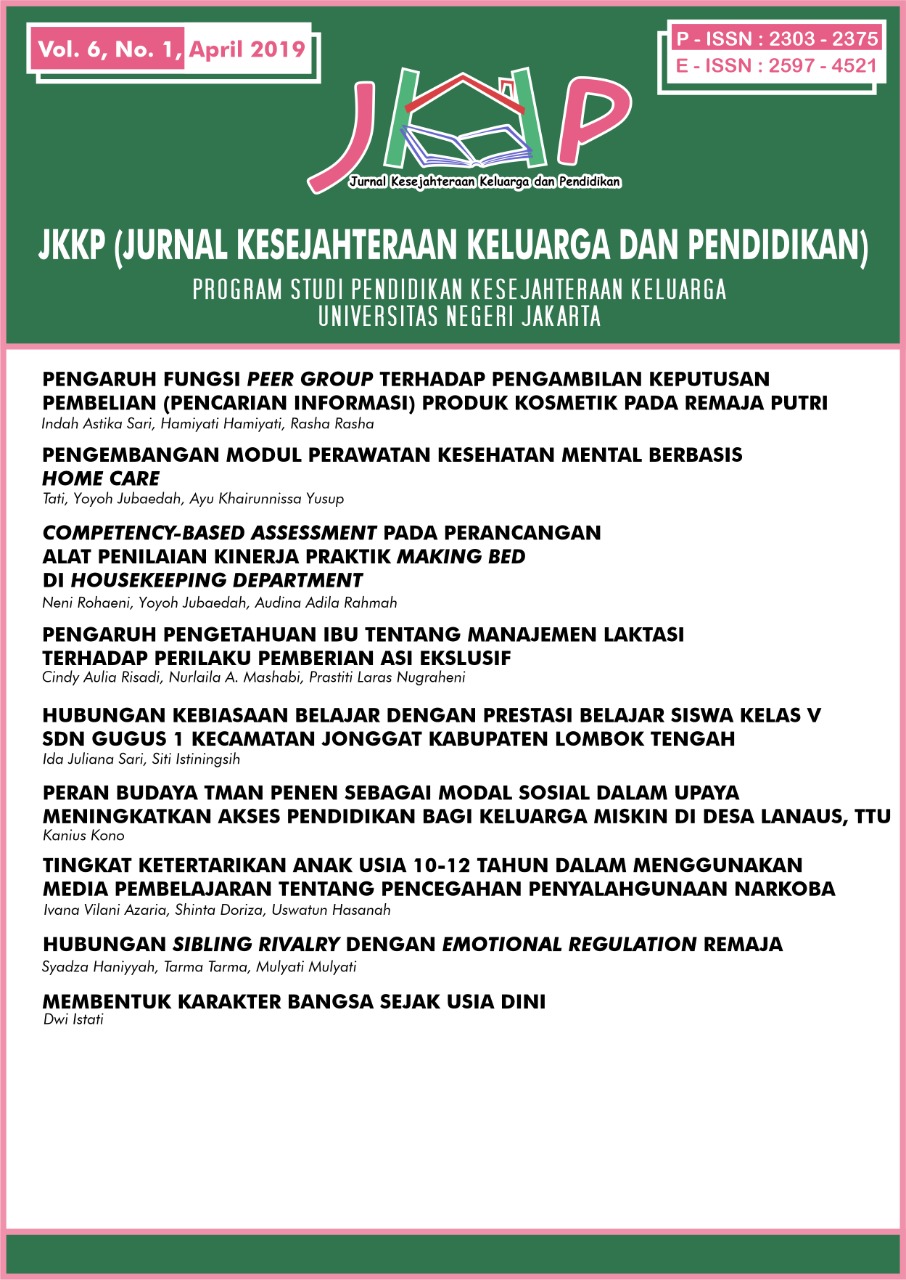MEMBENTUK KARAKTER BANGSA SEJAK USIA DINI
DOI:
https://doi.org/10.21009/JKKP.061.09Keywords:
pendidikan karakter, anak usia diniAbstract
Early childhood period is a golden age, where at this time aspects of child development very rapidly, including in order to shape their character. Character education is complex education because it involves aspects of cognitive, feeling, and action. Character education is based on basic human character, which comes from universal moral values (absolute) derived from religion which is also referred to as the golden rule. Character education can be taught systematically in a holistic education model using the method of knowing the good, feeling the good, and acting the good. Character will be formed as a result of understanding 3 relationships that must be experienced by every human being (triangle relationship), namely the relationship with oneself (intrapersonal), with the environment (social and natural relationships), and relationships with God (spiritual).
Abstrak
Masa usia dini adalah masa emas, dimana pada masa ini aspek-aspek perkembangan anak berkembang sangat pesat, termasuk di dalamnya adalah masa emas dalam rangka membentuk karakternya. Pendidikan karakter adalah pendidikan budi pekerti plus, yaitu yang melibatkan aspek pengetahuan (cognitive), perasaan (feeling), dan tindakan (action). Pendidikan karakter berpijak dari karakter dasar manusia, yang bersumber dari nilai moral universal (bersifat absolut) yang bersumber dari agama yang juga disebut sebagai the golden rule. Dan dapat diajarkan secara sistematis dalam model pendidikan holistik menggunakan metode knowing the good, feeling the good, dan acting the good. Karakter akan terbentuk sebagai hasil pemahaman 3 hubungan yang pasti dialami setiap manusia (triangle relationship), yaitu hubungan dengan diri sendiri (intrapersonal), dengan lingkungan (hubungan sosial dan alam sekitar), dan hubungan dengan Tuhan YME (spiritual).
Downloads
Published
Issue
Section
License
Authors who publish with this Journal agree to the following terms:
- Author retain copyright and grant the journal right of first publication with the work simultaneously licensed under a creative commons attribution licensethat allow others to share the work within an acknowledgement of the work’s authorship and initial publication of this journal.
- Authors are able to enter into separate, additional contractual arrangementfor the non-exclusive distribution of the journal’s published version of the work (e.g. acknowledgement of its initial publication in this journal).
- Authors are permitted and encouraged to post their work online(e.g. in institutional repositories or on their websites) prior to and during the submission process, as it can lead to productive exchanges, as well as earlier and greater citation of published works.
Users/public use of this website will be licensed to CC BY SA
![]()







